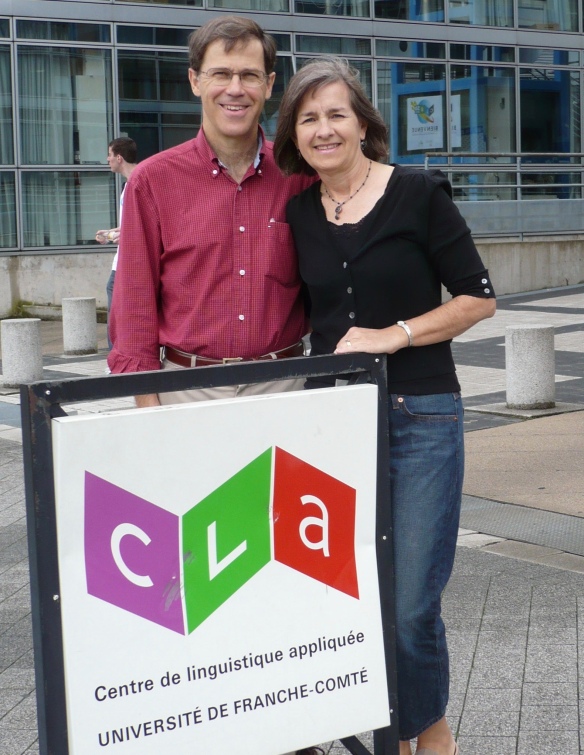
Last week we had an anniversary of sorts: It’s been 10 years since we packed up and left the US. This photo was taken in 2008 while in language school in France.
Yes, we look younger here. We were also more naïve. We were going to Africa to live and work and make things better by teaching future surgeons and nurses. We were going to make a difference!
What we couldn’t see was what a difference it would make in us. It has been hard, very hard, but also much more satisfying than we could have imagined. We have no regrets about coming.
Back in 2007 during our orientation, we heard this quote (it could be a bit off, but it went something like this):
“A couple went on a two week missions trip, visiting a foreign country for the first time. Excited about all they had seen and learned, they came home and wrote a book about their experience.
Another couple went on a mission for two years. They came home and wrote an article for a magazine about their experience and how it had shaped them.
A third couple left home and went to live and work in another country. After 20 years, they were asked if they didn’t want to write about their experience. Their response was that they were just beginning to understand the culture they were living in and really didn’t feel they were equipped to write about it.”
We’re in the middle of the last scenario now. The cultures we’re living in have affected us on a deep personal level. It’s not often easy to write about that. We’re not the same couple who came to Cameroon in 2008. This is our present; it feels like where we’re at home, even though we are and will always be “other”, “white”, and “foreign” here.
As we’ve grown to know and love people here, we’ve been changed. Things like corruption, lack of access to health care, poverty, and lack of access to education are no longer things we just observe and comment on, they’re things that affect us and those we’ve come to care about every day. The consequences? Disease, many children dying young, people coming very late with illnesses that might have been healed if treated early, illiteracy, unemployment, malnutrition and hunger, hard labor, discouragement. Yes, we have those things in the US, also, but it is not on the same scale.
You can imagine that the realities of the last paragraph took some adjustment for this starry-eyed couple. In the US, we often think we know the solutions for the problems we’re faced with. It wasn’t long before we realized how powerless we were to affect real change, especially if we were acting alone.
The good things? Our eyes have been opened to so much that we didn’t see before. Yes, they are often painful things that are hard and there are no simple solutions or easy answers. There are people within the culture who are working to change things and we’ve been able to encourage and assist some of them. There are surgeons and wound care nurses who have been trained and who are making a real difference and even teaching others.
We’ve learned and received much more than we’ve given or taught. And often the most important things have been learned from some of the most humble people. Those who suffer and yet endure, those who live with obstacles and challenges that to us seem impossible and yet they never give up hope in the Living God. These are the people who are among the “cloud of witnesses” in Hebrews 12, those who endure, God helping them. These are our heroes and those who encourage us and spur us on.
We thank God for the past 10 years. We’re thankful for the good and the hard; they’re both a part of His plan. We had some naive notions of what we were coming here to do. Thankfully, God’s plan was much more comprehensive than that; it was also to transform us in the process.























